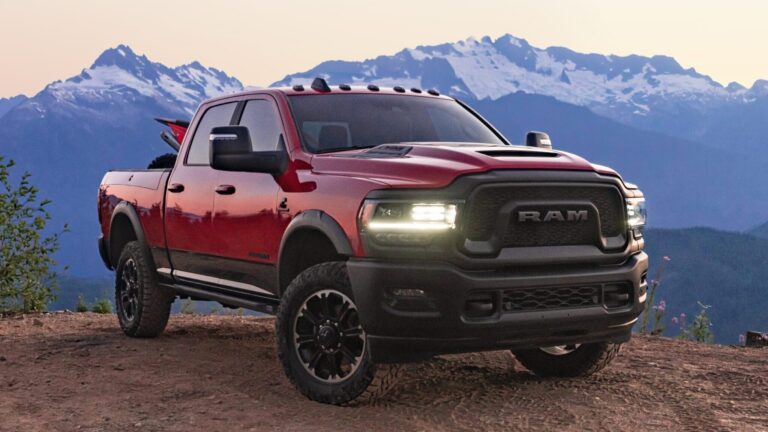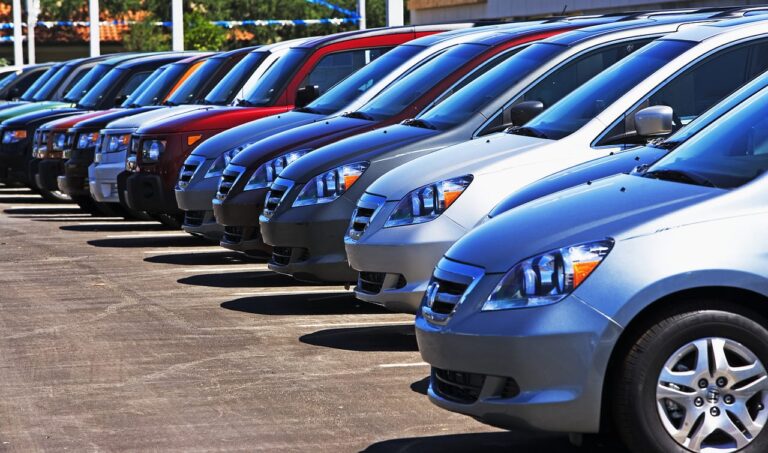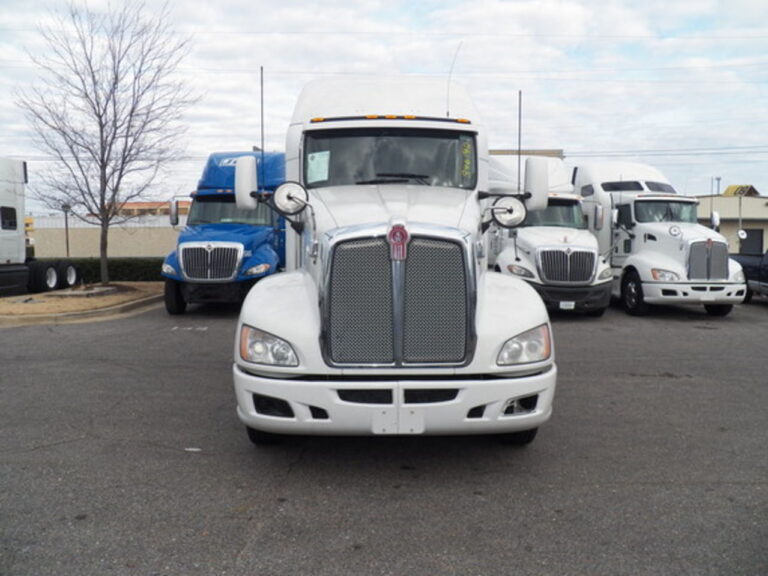U-Haul Pickup Trucks For Sale: Your Comprehensive Guide to a Smart Purchase
U-Haul Pickup Trucks For Sale: Your Comprehensive Guide to a Smart Purchase cars.truckstrend.com
In the vast landscape of pre-owned vehicles, few categories offer the unique blend of affordability, proven reliability, and utilitarian value quite like former fleet vehicles. Among these, U-Haul pickup trucks stand out as a compelling option for individuals and businesses seeking a dependable workhorse without the steep price tag of a new vehicle. These trucks, once the backbone of U-Haul’s extensive rental fleet, transition from assisting countless moves to potentially serving as your next robust personal or commercial asset. This comprehensive guide will delve into everything you need to know about purchasing a used U-Haul pickup truck, helping you navigate the process with confidence and make an informed decision.
Why Consider a Used U-Haul Pickup Truck?
U-Haul Pickup Trucks For Sale: Your Comprehensive Guide to a Smart Purchase
The idea of buying a truck previously subjected to the rigors of rental use might initially raise an eyebrow. However, a closer look reveals several distinct advantages that make U-Haul pickup trucks a surprisingly intelligent acquisition:
- Exceptional Value and Affordability: The most immediate benefit is the cost savings. Used U-Haul trucks are significantly more affordable than comparable new or even many other used trucks on the private market. Their fleet depreciation means you benefit from a lower purchase price.
- Rigorous Maintenance History: U-Haul operates one of the largest and most consistently maintained fleets in North America. Their business model relies on vehicles being in excellent working order to ensure customer safety and satisfaction. This translates to regular, scheduled maintenance performed by professional technicians, often surpassing the care a private owner might provide.
- Built for Durability: These trucks are designed and configured for heavy-duty use, often equipped with robust engines, strong suspensions, and towing packages. They are built to withstand constant use and hauling, making them inherently durable.
- Transparent Ownership History: While they have multiple drivers, their maintenance and repair history is generally well-documented by U-Haul. This provides a level of transparency often missing in private party sales.
- Ready for Work: Many U-Haul pickups come equipped with features useful for work, such as bed liners, tow hitches, and often larger beds (e.g., 8-foot beds), making them immediately ready for hauling, towing, or various business applications.
- Variety of Options: While the specific models are limited to those favored by U-Haul for fleet operations, you’ll find a range of years, mileage, and configurations within popular domestic truck brands like Ford, Chevrolet, and GMC.

Understanding the U-Haul Fleet: Models and Configurations
U-Haul primarily utilizes full-size, light-duty pickup trucks from major American manufacturers, chosen for their reliability, parts availability, and robust capabilities.
- Common Makes and Models: You’ll predominantly find Ford F-150s, Chevrolet Silverado 1500s, and GMC Sierra 1500s. Occasionally, you might encounter older heavy-duty models like Ford F-250s, though these are less common in the general rental fleet.
- Typical Configurations: Most U-Haul pickups are configured for utility. This often means regular cabs or extended cabs (SuperCab for Ford, Double Cab for GM) with longer beds (6.5-foot or 8-foot) to maximize cargo capacity. Four-wheel drive options are less common but can be found in certain regions.
- Engine Types: Depending on the model year, you’ll encounter a variety of V6 and V8 gasoline engines. For Ford, this might include the venerable Triton V8s or the more modern EcoBoost V6s. GM trucks typically feature their reliable Vortec V6 and V8 engines. These powerplants are known for their durability and ample torque for hauling.
- Age and Mileage: The fleet constantly rotates, so you’ll find trucks ranging from relatively recent models (e.g., 5-8 years old) to older vehicles (10-15+ years old). Mileage can vary significantly; while some may have high mileage from cross-country moves, many are used for shorter, local rentals, leading to lower-than-expected mileage for their age.

The Buying Process: How to Purchase a U-Haul Pickup

Purchasing a U-Haul pickup is a streamlined process, primarily conducted through their dedicated sales channel.
- Visit the Official U-Haul Truck Sales Website: The primary portal for purchasing these vehicles is U-Haul’s official "Truck Sales" website (typically found at uhaul.com/trucksales or a similar subdomain). This centralized platform lists all available vehicles.
- Search and Filter: The website allows you to filter listings by location (your nearest U-Haul sales lot), make, model, year, price range, and mileage. This helps you narrow down options that meet your specific criteria.
- Review Listings: Each listing provides detailed information, including photos, vehicle specifications (engine, transmission, cab/bed configuration), mileage, and the asking price. Some listings may also provide a basic vehicle history summary.
- Contact the Sales Location: Once you’ve identified a truck of interest, contact the specific U-Haul sales location where the vehicle is housed. This is crucial for arranging a viewing and test drive.
- In-Person Inspection and Test Drive: This step is non-negotiable.
- Visual Inspection: Examine the exterior for dents, scratches, rust (especially in northern climates), and tire condition. Check the interior for wear and tear, cleanliness, and functionality of controls.
- Test Drive: Pay attention to how the truck starts, idles, accelerates, brakes, and steers. Listen for unusual noises. Test all lights, wipers, and the HVAC system. Drive on various road conditions if possible.
- Pre-Purchase Inspection (Highly Recommended): While U-Haul maintains its vehicles, it is always advisable to have an independent, trusted mechanic perform a pre-purchase inspection. This can uncover potential issues that might not be apparent during a casual inspection or test drive, such as suspension wear, transmission problems, or engine leaks.
- Negotiation (Limited): U-Haul often sells its vehicles at fixed, non-negotiable prices, similar to a traditional used car dealership. However, it never hurts to inquire if there’s any flexibility, especially if you’re paying cash or if the vehicle has been on the lot for an extended period.
- Paperwork and Payment: If you decide to purchase, the U-Haul sales representative will guide you through the necessary paperwork, including the bill of sale and title transfer documents. Payment options usually include cashier’s checks, bank transfers, or major credit cards. Be prepared to handle registration and insurance in your state after the purchase.
Important Considerations Before Buying
Making an informed decision requires looking beyond the initial appeal of a low price.
- "As-Is" Sale: Most U-Haul vehicles are sold "as-is," meaning there is no warranty from U-Haul. This underscores the importance of a thorough pre-purchase inspection. Any issues discovered after the sale become your responsibility.
- Cosmetic Condition: Expect some cosmetic imperfections. These trucks have lived a hard life, and dents, dings, scratches, and interior wear (especially on seats and floors) are common. Decide if the cosmetic wear is acceptable given the price savings.
- Vehicle History Reports: While U-Haul has a maintenance record, consider pulling a third-party vehicle history report (e.g., CarFax or AutoCheck). These reports can sometimes reveal accident history, flood damage, or other critical information not immediately apparent.
- Intended Use: Match the truck to your needs. A U-Haul pickup is an excellent choice for hauling, towing, and general utility. If you’re looking for a luxury daily driver, a former rental truck might not meet your comfort or feature expectations.
- Long-Term Maintenance Budget: Even with a good maintenance history, any used vehicle, especially a former fleet vehicle, may require immediate or near-future maintenance. Budget for potential costs like new tires, brakes, fluid changes, or minor repairs soon after purchase.
Table: Representative Pricing for U-Haul Pickup Trucks
Please note that prices are highly variable and depend on the specific year, make, model, mileage, condition, and geographic location. The table below provides a general estimate for common U-Haul pickup offerings. Always check current listings for accurate pricing.
| Vehicle Type / Model | Typical Model Years | Average Mileage Range (approx.) | Est. Price Range (USD) | Key Features/Notes |
|---|---|---|---|---|
| Ford F-150 Pickup | 2010 – 2018 | 80,000 – 180,000 | $8,000 – $18,000 | V6/V8 (Triton/EcoBoost), Regular/Extended Cab, 6.5ft or 8ft bed, Tow Hitch. Good all-rounder. |
| GMC Sierra 1500 Pickup | 2010 – 2018 | 80,000 – 180,000 | $8,000 – $18,000 | V6/V8 (Vortec), Regular/Extended Cab, 6.5ft or 8ft bed, Tow Hitch. Reliable work truck. |
| Chevrolet Silverado 1500 Pickup | 2010 – 2018 | 80,000 – 180,000 | $8,000 – $18,000 | V6/V8 (Vortec), Regular/Extended Cab, 6.5ft or 8ft bed, Tow Hitch. Sister model to Sierra. |
| Ford F-250 Pickup (Heavy Duty) | 2008 – 2016 | 100,000 – 200,000 | $10,000 – $25,000 | V8 Gas (less common), Regular Cab, 8ft bed. Ideal for heavier towing/hauling. Prices can vary widely. |
| Dodge Ram 1500 Pickup | 2010 – 2018 | 80,000 – 180,000 | $8,000 – $18,000 | V6/V8 (Pentastar/Hemi), Regular/Quad Cab, 6.5ft or 8ft bed, Tow Hitch. (Less common in U-Haul fleet) |
| Disclaimer: | Prices are highly approximate and serve only as a general guide. Actual prices depend on the specific vehicle’s condition, exact mileage, year, features, regional market demand, and the specific U-Haul location. Always verify current pricing on the official U-Haul Truck Sales website. |
Practical Advice and Actionable Insights
- Do Your Homework: Research the specific make, model, and year of the truck you’re considering. Look up common issues, reliability ratings, and maintenance costs for that particular vehicle.
- Be Prepared for Wear: Understand that these trucks have been used. Set realistic expectations regarding cosmetic condition and potential minor repairs.
- Factor in Immediate Costs: Budget not just for the purchase price, but also for immediate necessities like new tires (if needed), a full fluid change (oil, transmission, differential), and potentially new brakes.
- Don’t Rush: Take your time to find the right truck. New inventory appears regularly, so if the first one isn’t perfect, another might be just around the corner.
- Prioritize Mechanical Soundness: A few dents are far less concerning than a major engine or transmission issue. Focus on the mechanical health of the vehicle above all else.
- Consider Aftermarket Warranties: If the "as-is" sale makes you nervous, research third-party extended warranty options, though these can be costly and have limitations.
Potential Challenges and Solutions
- Challenge: Cosmetic Blemishes: U-Haul trucks often have scratches, minor dents, and faded paint due to their working life.
- Solution: For a work truck, embrace the "patina." For better appearance, consider professional detailing, paint correction, or even a full wrap for business branding.
- Challenge: High Mileage: Some trucks may have accumulated significant mileage, raising concerns about longevity.
- Solution: Focus on the quality of maintenance over just the number on the odometer. A well-maintained high-mileage truck can be more reliable than a poorly maintained low-mileage one. The pre-purchase inspection is paramount here.
- Challenge: "As-Is" Sale and No Warranty: The lack of a U-Haul warranty can be a deterrent for some buyers.
- Solution: Mitigate risk with a comprehensive pre-purchase inspection. Set aside a contingency fund for potential immediate repairs.
- Challenge: Limited Customization: U-Haul trucks are typically base models with utilitarian features, lacking advanced tech or luxury amenities.
- Solution: If you need specific features, consider if aftermarket upgrades are feasible (e.g., new stereo, backup camera). Otherwise, accept the truck for its core purpose: a reliable work vehicle.
Frequently Asked Questions (FAQ)
Q1: Are U-Haul trucks reliable to buy used?
A1: Generally, yes. U-Haul has a vested interest in keeping their fleet well-maintained for safety and operational efficiency. However, as with any used vehicle, individual reliability depends on the specific truck’s history and condition, making a pre-purchase inspection crucial.
Q2: Do U-Haul trucks come with a warranty?
A2: No, U-Haul trucks are typically sold "as-is" without any express or implied warranty from U-Haul.
Q3: Can I test drive a U-Haul truck before buying?
A3: Yes, test drives are highly encouraged and can be arranged at the U-Haul sales location where the truck is listed.
Q4: Where can I find U-Haul trucks for sale?
A4: All available trucks are listed on U-Haul’s official "Truck Sales" website (uhaul.com/trucksales). You can filter by location.
Q5: Are the prices negotiable?
A5: U-Haul often sets fixed prices for their vehicles, similar to a dealership. While there’s generally limited room for negotiation, it doesn’t hurt to inquire, especially if paying cash.
Q6: What kind of maintenance do U-Haul trucks receive?
A6: U-Haul follows a strict preventative maintenance schedule for its fleet, including regular oil changes, tire rotations, brake inspections, and general mechanical checks, performed by their in-house technicians.
Q7: Is financing available for U-Haul trucks?
A7: U-Haul itself typically does not offer direct financing for truck sales. You would need to secure financing through your bank, credit union, or another third-party lender.
Q8: What should I look for during an inspection?
A8: Beyond general mechanics, pay attention to tires (even wear, remaining tread), brakes (pad thickness, rotor condition), suspension components (shocks, struts, bushings), fluid leaks, check engine lights, and the functionality of all electrical components. Always have a professional mechanic conduct a thorough inspection.
Conclusion
Purchasing a used U-Haul pickup truck can be an exceptionally smart and cost-effective decision for individuals and businesses alike. These trucks offer a compelling blend of affordability, robust design, and a history of professional maintenance, making them ideal candidates for a variety of demanding tasks. While they come with the expected wear and tear of a working fleet vehicle and are sold "as-is," a diligent approach – involving thorough research, a comprehensive pre-purchase inspection, and realistic expectations – can lead to owning a reliable and high-value workhorse. By understanding the buying process, knowing what to look for, and embracing the practical nature of these vehicles, you can confidently drive away with a dependable U-Haul pickup that serves your needs for years to come.
![]()




